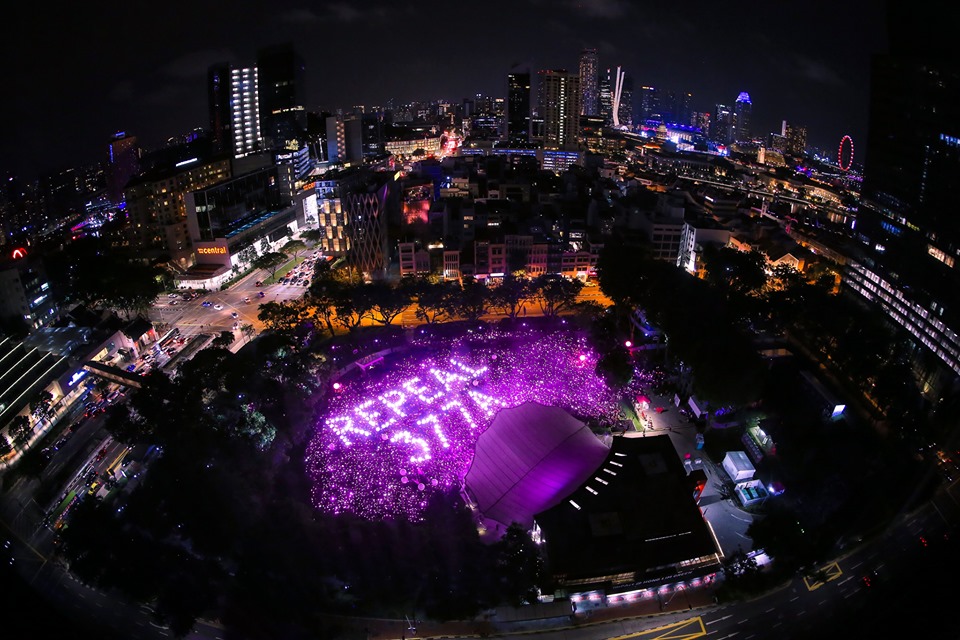Singapore—According to the results of a poll published by the Institute of Policy Studies last May, opposition to same-sex marriage has decreased from 74 percent in 2013 to 60 percent at present.
However, how this will factor in the hearings in the High Court on Wednesday, November 13, remains to be seen.
There are three separate challenges to Section 377A of the country’s Penal Code, a throwback provision to colonial times that criminalizes sex between men which will be heard in court, with penalties such as jail time as long as two years. The provision does not apply to sexual acts between women.
Last year, India abolished a similar provision. This year, LGBTQ activists across Asia are looking to see if Singapore will follow suit, to see if reforms can be enacted in other areas as well, since countries such as Malaysia and Myanmar have similar laws.
Three activists have mounted these challenges. One challenge was filed by Roy Tan, an LGBTQ rights activist in September. He said that he looked forward with the expectancy that Section 377A would be finally repealed.
The other two challenges were filed in 2018, one by disc jockey Johnson Ong Ming (aka DJ Big Kid) and the other by Bryan Choong, the former executive director of Oogachaga, an LGBTQ non-profit organisation.
The Attorney-General is the defendant listed in the challenges.
Mr Ong told Reuters, “I think public opinion is pretty clear across religious and age segments that homosexuality should not be a criminal offence.”
“I have full confidence in our judicial system and I am hopeful that the court will come to the right decision … and overturn Section 377A,” he added.
The hearings are scheduled for November 13, 15, 18, 20, 21 and 22.
Legal challenges in the past have been unsuccessful, given the relatively conservative and multi-religious nature of Singaporean society.
According to Prime Minister Lee Hsien Loong, the country “is not that liberal on these matters”.
But abolishing Section 377A of the Penal Code would be a landmark for Singapore and would most likely impact the rest of Asia.
The Reuters report also quotes the president of the LGBT+ advocacy Pelangi Campaign in Malaysia, Numan Afifi, as saying, “If the decision in Singapore goes our way, then it will boost our morale here in Malaysia.”
And the executive director from the Yangon-based Equality Myanmar LGBT+ campaign group, Aung Myo Min has said that Myanmar and Singapore need to follow India’s example in repealing the colonial-era law.
In Malaysia, individuals caught participating in gay sex could be jailed for up to 20 years, while in Myanmar, they could be imprisoned for up to 10 years.
Last month, LGBT-rights activists in Singapore noted a victory with the amendment of the Maintenance of Religious Harmony Act.
Sayoni, an organization that aims to empower queer women in Asia, wrote, “In the amendments to the Maintenance of Religious Harmony Act, the new provisions will protect vulnerable groups in Singapore, including the LGBTQ community, as it will be an offense to knowingly urge violence, based on religious grounds, against a target group or person.
The Explanatory Statement unambiguously notes that target groups includes persons “who share a similar sexual orientation”. This is, to our knowledge, the first time a law in Singapore explicitly extends protections to cover sexual orientation.” /-TISG

